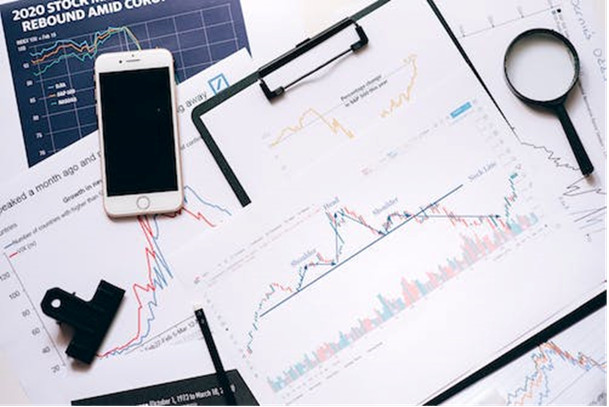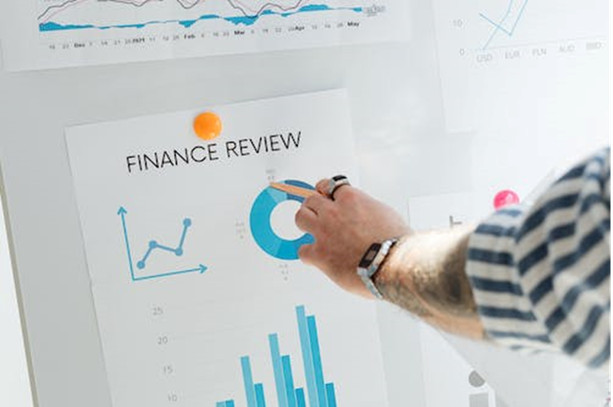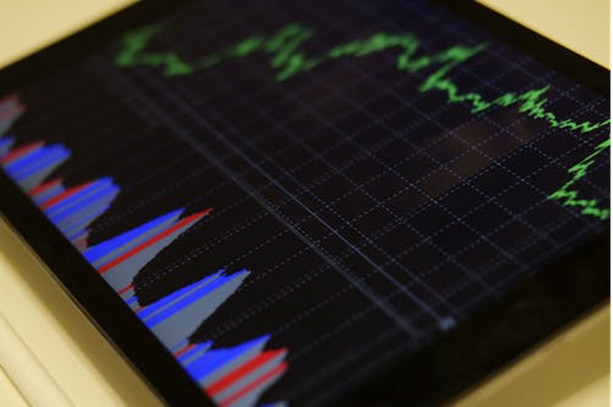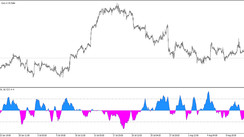Big data and the science behind it have had a profound effect on decision-making across all sectors in the last two decades. With the exponential development of extensive data usage, its effective management is becoming increasingly crucial. The three categories of big data are structured, semi-structured, and unstructured. Using descriptive statistics, cluster analysis, regression analysis, and text mining are the most prevalent analytics techniques.
The demand for big data is rising, which is already a legal aspect of the business. In addition to being immensely beneficial, the market for big data is projected to reach a staggering $274 billion by the end of 2022. Thus, data discovery has become very important nowadays.
How can you discover data
Automated data discovery tools are now available. Determining what data you possess, where it is, and who has permission to use it. It’s essential for privacy law compliance, as data is the core of your business. The latest AI-driven data discovery products categorize, and evaluate your data across all your systems effortlessly and automatically.
How can big data be used in trading
In finance and business, accurate inputs into decision-making models are indispensable. Historically, people analyzed statistics and made decisions based on conclusions drawn from risk and trend assessments.
Today, computers have replaced humans in this role. They calculate on a massive scale and collect data from a variety of sources to produce more precise results almost immediately. This has substantially increased the precision and quickness of trading, allowing merchants to make more lucrative transactions with less risk.

Top 7 ways big data is transforming the trading industry
Here are several ways in which big data transforms the financial trading industry.
1. Makes transactions more effective
Financial speculators have access to a plethora of information. This is a fantastic resource for them, as they use it to process, analyze, and leverage additional crucial data to increase their profits. Traders are constantly attempting to acquire more and more information that provides a competitive advantage. Note that the key to effective trading is making the correct decisions at the appropriate time.
On the other hand, data science enables merchants to make more informed decisions by providing them with the necessary data. For instance, traders are using historical volatility surfaces to comprehend the relationship between various assets better to conduct more efficient transactions.
Moreover, data scientists are developing algorithms to execute transactions autonomously based on predefined criteria.
2. Real-time analytics
Incredible progress has been made in machine learning. This has enabled computers to make decisions and implement transactions at speeds and frequencies unimaginable to humans. It incorporates the finest practices of finance and trading, with software capable of processing many variables in real time.
Real-time analytics are essential for bank growth. They help banks save a lot of money and get a lot of value by reducing fraud losses and finding strange transactions early. With the help of real-time data, banks track their risk exposure, predict scams, and ensure they’re making suitable investments.
In addition, they collect data on their clients' spending patterns and devise innovative solutions to their financial problems.
3. Enhanced productivity through artificial learning
The branch of AI known as machine learning (ML) enables computers to recognize patterns in data. Several hedge fund trading companies employ ML algorithms to sift through vast data and identify suspicious trading activity. In addition, it eliminates the human element and guarantees an error-free procedure.
ML represents a comprehensive revolution. Thanks to ML, financial executions are performed differently and more efficiently today. All of these advantages won’t render humans obsolete, as they’re the ones who make the final decision.
4. Using big data analytics in financial models
As its name suggests, financial analytics is the analysis of financial data. It emphasizes the behavior of values and their research. Factors that affect this pricing are analyzed. Also, contemporary political and social trends and developments in human psychology are included in the analysis.
Big data analytics is used to construct analytical models that evaluate investment return rates and potential outcomes. It makes more precise forecasts possible, improving the efficiency with which financial trading risks are mitigated.
5. Investing in a prudent manner
Stock traders are constantly in search of new strategies that will assist them in making data-driven trading decisions. Technical indicators are one approach; they help spot price fluctuations, market movements, and other data patterns.
Formerly reserved for the most financially stable businesses, companies of all sizes now have access to the same sophisticated analytics and data. Day and swing traders use big data to make informed market decisions and generate profits.

6. Algorithm trading
When the future and index values of the S&P 500 were far off, arbitrage traders would pre-program orders for automated trading on the New York Stock Exchange using program trading. This practice dates back to the 1980s.
As markets became completely computerized, human trading floor presence became obsolete, and high-frequency traders emerged. Specific algo traders' trading software has developed to be faster and has lower latency to better respond to order flows.
Because of computer and communication technology advances, algorithmic trading has gained popularity. Algorithmic trading entails using computer programs to submit trading orders, with the computer programs determining nearly every aspect of the transaction, including the time, price, and quantity of the order, etc.
7. Automatic trading
AI and automated trading systems (bots) are crucial to this kind of trading. Trading strategies grounded in ML eliminate the influence of human emotions. Inexperienced traders now have access to strategies developed to assist them in making transactions objectively and without emotional interference.

Big data in finance and banking
Big data is modifying the finance industry in countless ways. The financial sector data analytics market is expected to be worth $5.4 billion by 2026. On the other hand, big data is expected to have a much more significant effect on the stock market.
At the moment, the world creates 2.5 quintillion bytes of data every day, which is a once-in-a-lifetime chance to handle, analyze, and use the information in practical ways.
Algorithms and ML are used more often in the financial trading industry to analyze enormous volumes of data and make predictions and judgments that humans can’t. Financial institutions are searching for novel ways to leverage technology to boost efficiency in the face of increasing competition, regulatory constraints, and customer demands.
What effect does big data have on the financial landscape
Big data makes it possible to put more information into a system that works best when it knows about all possible influences. The revolution in big data analytics enables more accurate and well-informed trading, which profoundly affects the execution of financial transactions. Data analysis has been helpful in many industries since obtaining and analyzing data is a critical activity for any firm.
The stock market is shifting to data-driven investment approaches. These models objectively evaluate public corporations. They use the facts they have to make a world picture and then make decisions based on economic themes.
Before ten years ago, computers were exclusively used to interpret structured data. This information is now easily categorized, measured, or presented in a particular fashion. Modern tools make it possible to evaluate complex or unstructured data. This enables markets to watch and evaluate information from various sources, including images, audio, and dialects.
Data is essential for how most financial companies work and how they choose to spend. Even though most data processing tasks are automated, human opinion is still needed. Since big data has a significant effect on the financial system, data storage systems and technologies have been developed to enable it to record and analyze data in real-time to make decisions.
Distributed databases are an illustration. This involves storing data on multiple platforms instead of a unique location on a single platform. Vast amounts of data can be processed concurrently and on a large scale using distributed databases. Let’s take the example of ETF databases.
ETF database
ETFs or exchange-traded funds are precisely what their name implies: exchange-traded funds generally monitor a particular index. Buying an ETF gives you access to a pool of assets that may be traded on the open market, which helps diversify your holdings and reduce your overall portfolio's risk.
Using a comprehensive ETF database, you can research prominent ETFs, learn about top holdings, and discover algorithmic trading strategies. Compare and analyse vast ETF holdings database concerning their historical performance, top holdings, fee ratio, fund owners, and volume.
Big data has existed for several years and already significantly impacts all industries. Using algorithms makes trading in finance more efficient and aids in developing novel products by analyzing consumer routines and preferences.
Big data in the finance industry enables companies, institutions, and individuals to transact with more securities. It provides access to voluminous data from various places and the ability to analyze it rapidly. This enables businesses to reduce costs associated with physically sourced data and market losses.
As big data continues transforming the structure of numerous industries, the finance industry is employing big data analytics to preserve its competitive edge in the trading ecosystem. This technology will likely become a standard requirement for financial institutions anytime soon.
Use the power of big data
Big data transforms trading strategies by empowering traders to make better-informed decisions regarding when to purchase and sell securities. Big data is changing the world of trading in numerous ways through predictive analytics, real-time information analysis, sentiment evaluation, ML, and algorithmic trading.
By using the power of big data, traders minimize loss, boost profits, and adapt swiftly to market shifts. As big data analytics continues to develop, we can anticipate even more significant changes in the world of trading strategies.

About Author- Fatema Aliasgar is an experienced B2B and SaaS content writer based in Mumbai, India. She has done her Master's in Business Management and has written B2B content for eight years. She has a passion for writing and enjoys creating engaging content that resonates with her audience. When she isn’t writing, she enjoys spending time with her family and playing board games with her kids.





